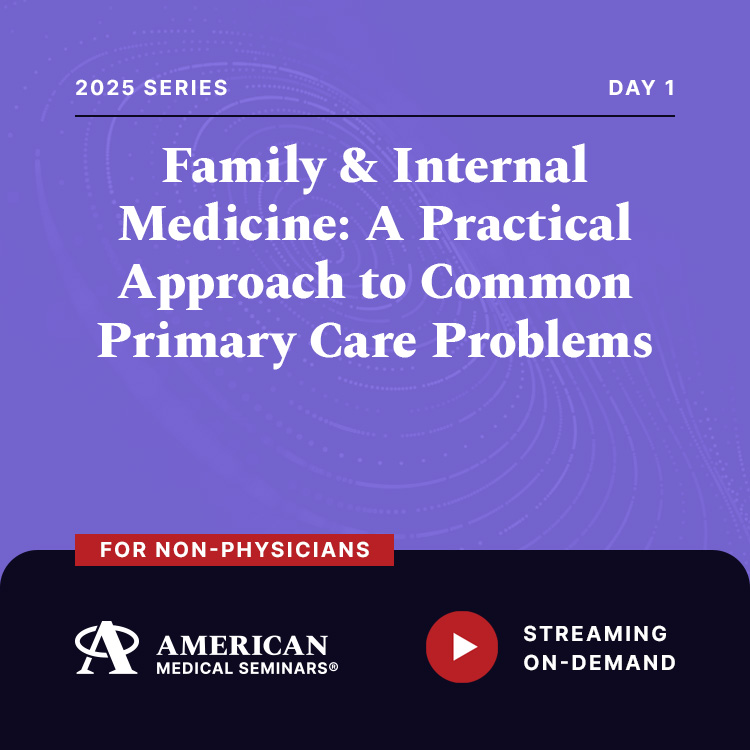Product Description
CME Sponsors: American Medical Seminars, Inc.
Activity Title: Family & Internal Medicine: A Practical Approach to Common Primary Care Problems Day 1
Recorded Dates: 11/11/2024
Original Release Date: July 1, 2025
Expiration Date: July 1, 2028
Presenting Faculty: David Horowitz; Herbert Muncie;
Approach to the Management of Stroke
Upon completion of this session, the participant should be able to:
- Develop a strategy to assess the common presentations of stroke/TIA.
- Utilize current initial treatment strategies appropriately.
- Develop a strategy to stratify the risk of stroke.
- Develop a secondary prevention plan.
Evaluation and Treatment of Hypertensive Patients.
Upon completion of this session, the participant should be able to:
- Identify the new blood pressure categories and describe how they relate to treatment options
- Employ the non-pharmacologic treatment options to manage hypertension.
- Specify the pharmacologic treatment options for patients with compelling indications.
- Formulate the therapeutic goal for controlling blood pressure in different patient populations and the combination of medications that can achieve that goal.
Cardiac Issues in Peri-Operative Risk Assessment
Upon completion of this session, the participant should be able to:
- Develop a consistent approach to the cardiovascular risk stratification for patients having noncardiac surgery.
- Determine the factors involved in maximizing cardiovascular outcomes for patients having noncardiac surgery.
- Assess the co-morbidities associated with valvular heart disease, tobacco use, and hyperlipidemia in the setting of non-cardiac surgery.
Strategies to Address the Issue of Preventable Hospital Readmissions
Upon completion of this session, the participant should be able to:
- Identify the factors which contribute to increased risk of readmission.
- Stratify the risk for readmission utilizing evidence-based tools.
- Develop a transition of care strategy to reduce the likelihood of a preventable readmission.
Chronic Obstructive Pulmonary Disease (COPD): Evaluation and Treatment.
Upon completion of this session, the participant should be able to:
- Appraise patient specific data to determine if they meet diagnostic criteria for COPD.
- Analyze the role of cigarette smoking in the etiology and natural history of COPD.
- Identify the staging options for COPD
- Formulate a treatment plan for the stages of COPD.
- Recommend the follow-up required to assess the therapeutic efficacy of the treatment options.
- Distinguish the side effect risks for each class of antihypertensive medications.
- The receipt for any incentive-associated purchase will designate the value of the gift card separately from the cost of the learning activity.
- This incentive may have implications on your tax reporting obligations. Any reimbursed amount must be declared as personal income for tax purposes.


